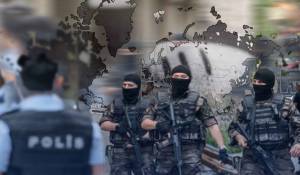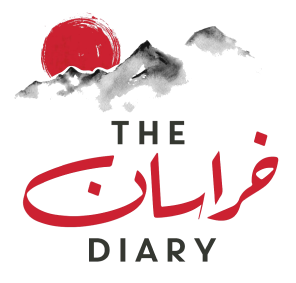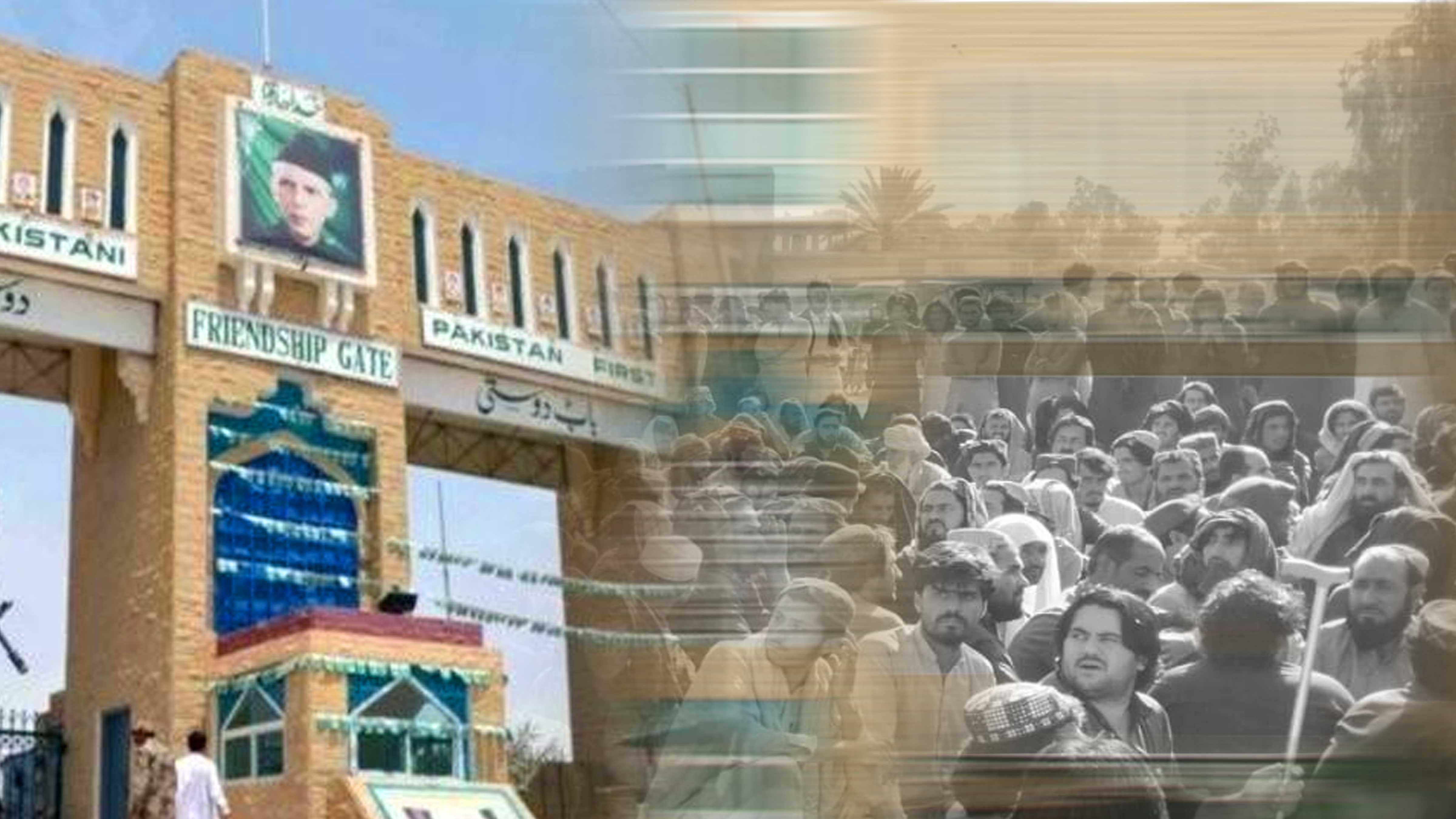
Imtiaz Baloch

February 23, 2026
By | Imtiaz Baloch

In November last year, Pakistan National Apex Committee, a high-level government forum established in 2015 following the Peshawar Army Public School attack to oversee counter-terrorism efforts, decided to implement stricter border controls. The committee ruled that only individuals carrying valid passports and visas would be granted permission to travel between Pakistan and Afghanistan. The decision marked a major shift from the previous policy, which allowed Pakistanis and Afghans to cross the border using their national identity cards, known as Tazkira, from either country.
The new policy, often described as a “one-document visa regime,” has drawn mixed reactions from concerned quarters. Locals whose livelihoods are heavily reliant on trade with Afghanistan have denounced the policy as unjustified and cruel, arguing that it severely undermines their decades-old cross-border trade with Afghanistan.
In contrast, government officials justify the policy as a necessary measure, emphasizing that no country can allow unchecked cross-border movements.
The Chaman border, a major Pakistani trade and people's movement border crossing with Afghanistan has been the site of massive protests by local traders, daily wage border trade workers, and tribesmen for months. The protesters demand that the Pakistani government repeal the one-document visa regime, which they claim is gravely hindering their trade with neighboring Afghanistan.
Pakistani officials maintain that it is time to regulate cross-border movements for trade and people's movement to ensure that no one goes unchecked, citing international cross-border movement protocols that require proper documentation for travel. Security concerns have also driven these measures, as Pakistani officials claim that unchecked travel enables militants to cross the border for terrorist activities in Pakistan.
According to the Pakistani government, two major terror incidents have been traced back to the Chaman border, where Afghan-origin vehicles were transported via Chaman border for attacks against Chinese nationals in Pakistan. These attacks include the July 2021 attack on Chinese nationals in Dasu, Kohistan district, and another attack March 2024 in Besham, Shangla district of Khyber Pakhtunkhwa, resulting in the killing of at least 14 Chinese engineers working on hydroelectric power projects in the province.
For centuries, Pashtun communities on both sides of the border have been united by shared language, ethnicity, religion, tribal affiliations, local economy, and familial ties, predating the creation of Pakistan. However, the dynamics shifted with Britain's withdrawal from the subcontinent after years of colonization. Since then, territorial disputes between the governments of Pakistan and Afghanistan have become a significant barrier to people-to-people connections on both sides. In March 2017, Pakistan began fencing its border with Afghanistan, citing security concerns and aiming to contain the cross-border movement of militants, which further disrupted the traditional fluidity of cross-border interactions.
Chaman Protest
Situation on the ground in Chaman has been tense since months. Protesters from the Laghari community, (daily wage workers engaged in cross-border trade) have disrupted anti-polio drives, leading to the arrest of over 40 protesters and injuries to at least 28 protesters and 17 security personnel. The authorities have shut down internet and communication services in the district for several days. The Laghari community has been leading sustained protests in Chaman, Balochistan, for six months, against the Pakistan government's visa policies, which they claim are severely undermining their livelihoods. The situation often becomes tense, with clashes breaking out between protesters and security forces. Last month, one person was killed and seven others were injured in a clash between Frontier Corps (FC) and the Laghari community at the protest site. Recently, four Levies personnel and two women health workers were injured when the Laghari community attempted to disrupt the polio vaccination campaign, citing the government's lack of interest in addressing their demands. The protesters have also shut down the Passport office, other government offices, and the Press Club Chaman further intensifying the crisis.
Meanwhile, the Balochistan government has recently requested the federal government to establish an additional border crossing with Afghanistan at the less operational Badini border crossing in Qilla Abdullah district. The objective behind this new crossing appears to be to provide an alternative route for bilateral trade with Afghanistan, bypassing the ongoing protests in Chaman and ensuring the continuity of trade activities.
Maulana Abdul Karim, a resident of Chaman district and a seminary teacher who graduated from Jamia Darul Uloom Haqqania, told The Khorasan Diary that the people living on both sides of the Durand Line share common cultural and familial ties, with some even owning agrarian land on both sides of the border. “For decades, we have been using our identity cards to cross the border without issue,” said Karim. However, “the recent change in the documentation regime policy has had a devastating impact on common people, daily wage workers, and traders in the bordering Chaman district,” he claimed.
Agha Gul Khilji, Vice President of the Quetta Chamber of Commerce, While talking to The Khorasan Diary expressed concern over the impact of the government's new visa policy for traders at the Pak-Afghanistan and Pak-Iran borders. He revealed that the government of Pakistan collects a minimum of 20 crore rupees in tax per day at the Chaman border, highlighting the significance of cross-border trade.
Khilji emphasized that the halted trade in the bordering areas is affecting thousands of traders and their families, who rely on this trade for their livelihood. He noted that Balochistan's economy is largely dependent on trade, as it is not an agrarian region and lacks functional industries. Khilji warned that this sudden decision by authorities may drive people towards criminal activities due to the lack of alternative income sources.
Khilji stressed the need for a more effective solution to address the challenges faced by the trading community, urging the government to reconsider its policy and find a way to support the traders and the local economy.
However, Shahid Rind, spokesperson for the Balochistan government, told TKD that “the government's policy is not to halt the documentation policy in border areas.” He added that “as long as the protesters remained peaceful, the government did not intervene to stop their protest.” When asked about the incidents of violence in the protests, Rind claimed that protesters had attacked the Frontier Corps (FC) fort in Chaman, the Deputy Commissioner's office, and recently targeted polio workers, injuring Levies personnel and health workers in the Chaman district.
He also announced that the government has offered a compensation package of twenty thousand rupees for each daily wage worker through the Benazir Income Support Program (BISP), a federal government poverty reduction program in Pakistan named after the former Prime Minister Benazir Bhutto.
Mashkal Border With Iran
Similarly, the residents of Mashkal, a town with a population of over 40,000, bordering Iran in the Washuk district of Balochistan, staged a protest for over a month now, but it went unnoticed by the media and officials due to the town's remote location. The people of Mashkal heavily rely on Iran for their daily necessities, labor work, and healthcare facilities.
Jeeyand Raki, a resident of Mashkal, led a protest march to the provincial capital, Quetta, after their demands went unnoticed in their hometown. In an interview with TKD, Raki emphasized that the issue affects the entire Rakhshan division, as many people rely on cross-border trade for their livelihood. He also noted that some of their demands, including the reopening of borders for essential goods, have been addressed by the government.